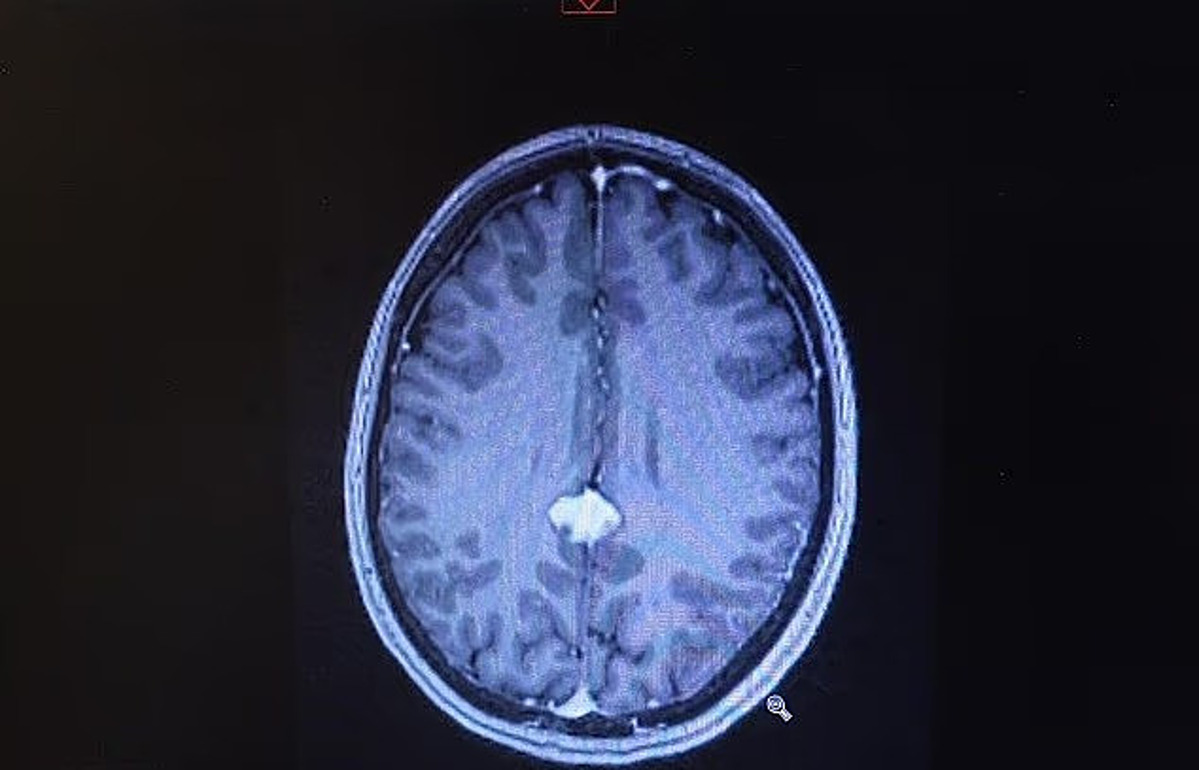April Tate, from Burntisland, Fife, initially dismissed her sudden forgetfulness, like forgetting a child's name at work, as a symptom of perimenopause. However, her condition took a serious turn when she was diagnosed with a posterior falcine meningioma, a deep-seated, inoperable brain tumor.
Initially slow-growing, the tumor was placed under a "watch and wait" program with regular MRI scans. By the end of 2022, it had begun to grow, but remained small enough for stereotactic radiotherapy.
"I'm going to die," April recalled her initial thought upon diagnosis. "I'm a single mom, my daughter is still a child. All I could think about was not being there for her."
Due to the tumor's precarious location, surgery was impossible. April underwent stereotactic radiotherapy, a treatment designed to shrink the tumor while preserving surrounding brain tissue. The daily sessions were short, but tiring and stressful. The treatment required her to wear a mask that completely immobilized her head, which she found claustrophobic.
Following treatment, the tumor shrunk and continued to decrease in size in subsequent scans. April now undergoes annual monitoring, has returned to work, and has even completed her first 5 km run.
Meningiomas account for about one-third of all brain tumors. They form in the membranes that protect the brain and spinal cord, and are typically benign, but dangerous if located near critical areas like the falx cerebri (a fold of connective tissue in the dura mater).
Symptoms vary depending on the tumor's location and can include headaches, memory loss, and behavioral changes. Memory loss, in particular, can be easily overlooked or mistaken for age-related issues, stress, or hormonal imbalances in perimenopausal women. Many patients initially experience only mild forgetfulness, difficulty concentrating, or slight disorientation, and don't suspect a brain tumor. This can lead to delayed diagnosis, especially for slow-growing tumors like meningiomas.
 |
Image of the patient's brain tumor. Photo: SWNS |
Image of the patient's brain tumor. Photo: SWNS
For small, low-grade, asymptomatic tumors, doctors often opt for active surveillance rather than surgery or radiotherapy. This approach avoids the risks associated with unnecessary invasive procedures.
However, the psychological toll remains. April admitted her concerns about the impact of the diagnosis on new relationships and the reality of living with a tumor for life. Though benign, the tumor is still present and could change at any time.
April is currently taking part in the 88-abs-a-day challenge in July to raise money for Brain Tumour Research, aiming to raise £2,740, the equivalent of one day of research at the Brain Tumour Research Centre of Excellence at the University of Plymouth.
"People hear the words 'benign' or 'low grade' and think it's not serious, but I live with this every day," April emphasized. "The biggest shock for me was how little funding goes into brain tumor research, and that needs to change."
Ashley McWilliams, community development manager at Brain Tumour Research, said: "April’s story is a stark reminder that brain tumors can mimic everyday health issues. Her resilience and commitment to raising awareness is truly inspiring."
Thuc Linh (Daily Mail)












